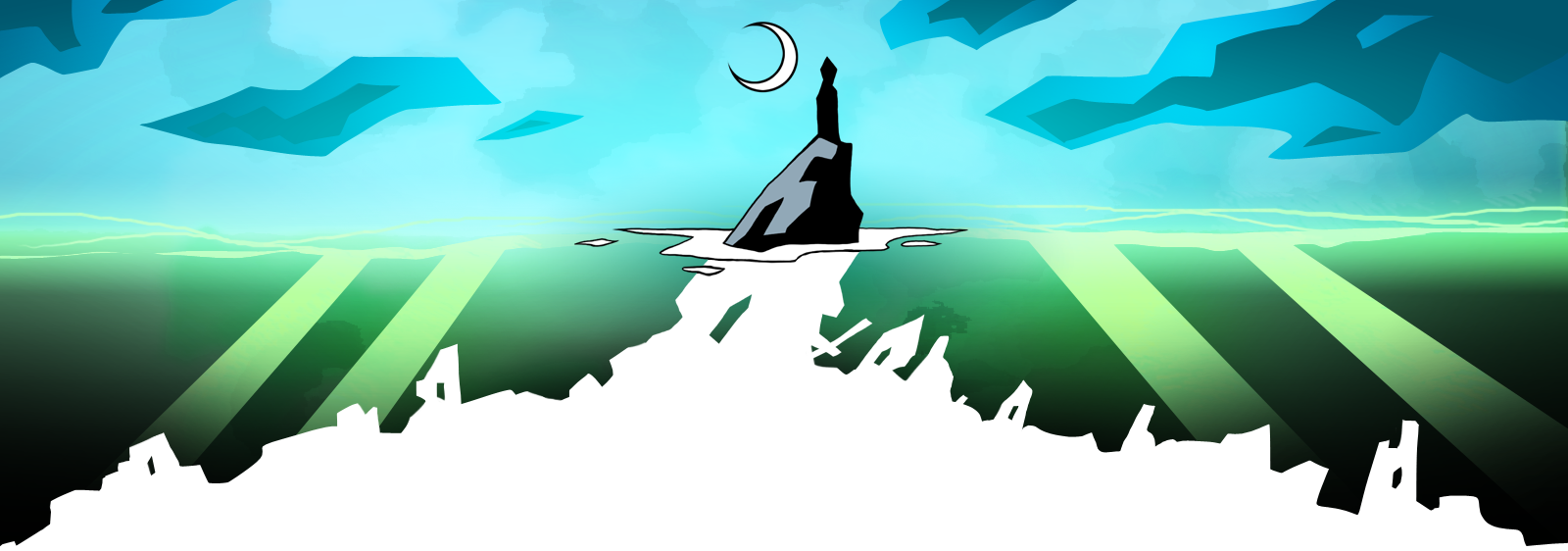
Strategy
An introduction to the advanced strategies of The Shipwreck Arcana gameplay.
Strategy
This page provides a light introduction to the strategy of playing The Shipwreck Arcana, specifically the choices that you will face during the play a fate and predict a hidden fate portions of the game.
If you want to unearth these nuances for yourself, stop reading and start playing! But if you feel like your guesses are never well-informed and your plays are basically random, read on to discover some additional ways to derive or impart information.
The contents of this page are also demonstrated in the second half of the tutorial video.
Example
In this example, it’s currently someone else’s turn and you are part of the group.
The active player draws 2 fates from the bag, thinks for a while, and then plays a 1 on Midnight. Now you and the rest of the group's must try to determine the value of the fate they did not play.
The active player has just played a 1 on Midnight, and is still holding their other, hidden fate.
Let's look at where they played. Midnight says:
"Lower: If one of your fates is lower than the other, play the lower one here."
So we know their other fate is *not* lower than 1. That means they don't have a second 1. To help us track things, we them to flip over the 1 on their number line.
Now, let's look at each of the cards they did not play on. The Deep says:
"≤5: If the sum of your fates is 5 or less, play one of them here."
The big question is, did they choose not to play here, or were they unable to?
If the active player had played that 1 here, we would have deduced that their hidden fate had to be a 1, 2, 3, or 4. That would have narrowed our choices down to four. But they played on Midnight instead, which narrowed our choices down to six.
Fewer choices would have made it easier for us to guess, and they want us to guess right, so we'll assume that if they could have played on The Deep, they would have. If they couldn't, then they don't have a 1, 2, 3, or 4.
Let's ask them to flip more of their number line.
Let’s look at The Judge and use the same logic. The Judge says:
"Even: If the sum of your fates is even, play one of them here."
If the active player was holding a 1 and another odd-numbered fate, the sum would have been even and they could have played on The Judge. There are 4 odd fates in the game: 1, 3, 5, and 7. Playing a 1 on The Judge would have narrowed our possibilities to those 4 fates, which again is better than the 6 options that Midnight gave us. We could conclude that they were unable play on The Judge either.
If that's true, they don't have any odd fates. Ask them to flip 5 and 7.
So it's likely that their fate is a 6. Now we decide as a group whether we want to make that prediction. If we think we've extrapolated too much information from their play, we could wait until next turn and see if they make a new play that supports our logic. However, that may work out poorly if they draw a new fate that forces them to play their 6 before we can guess it. We also won't necessarily know if they are able to play their new or their old fate next turn, so we risk losing the information we've gained.
If Midnight already had fates in front of it and was now about to fade, we’d almost certainly want to make a prediction, because doing so successfully would prevent the 2 doom caused by a card fading.
Summary
Overall, it's generally a good tactic is to look at each arcana card and ask yourself "What possibilities would be ruled out if I played a fate there?" Once you answer these questions and begin studying their overlap, you will start finding opportunities to mine the arcana cards for additional depth. You can often take this analysis multiple layers deep to convey truly astonishing amounts of information. This applies both while playing and while predicting, since the active player's goal is to anticipate what the group will conclude, and attempt to guide them towards the right choice.






